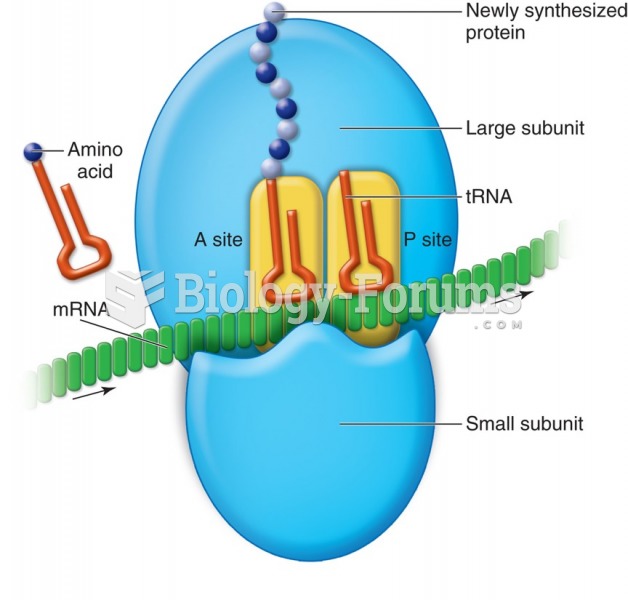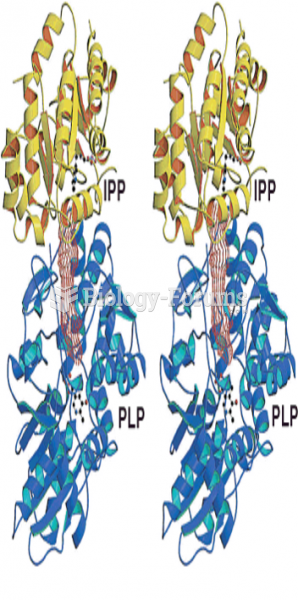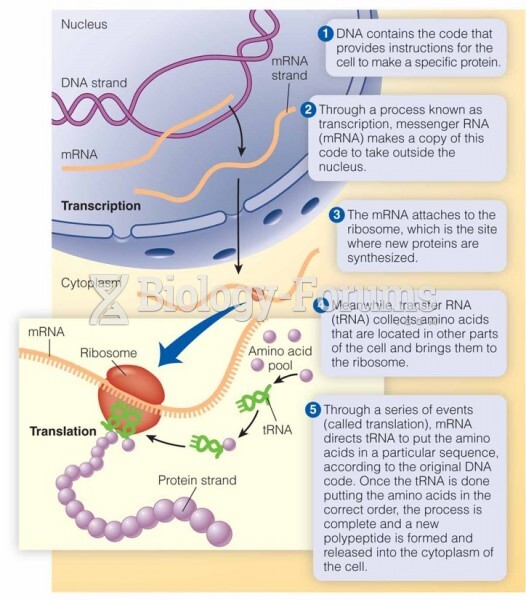|
|
|
IgA antibodies protect body surfaces exposed to outside foreign substances. IgG antibodies are found in all body fluids. IgM antibodies are the first type of antibody made in response to an infection. IgE antibody levels are often high in people with allergies. IgD antibodies are found in tissues lining the abdomen and chest.
Alcohol acts as a diuretic. Eight ounces of water is needed to metabolize just 1 ounce of alcohol.
Approximately 15–25% of recognized pregnancies end in miscarriage. However, many miscarriages often occur before a woman even knows she is pregnant.
In ancient Rome, many of the richer people in the population had lead-induced gout. The reason for this is unclear. Lead poisoning has also been linked to madness.
Everyone has one nostril that is larger than the other.
 Dopamine cannot cross the blood–brain barrier. Levodopa, its precursor, can. Once levodopa crosses ...
Dopamine cannot cross the blood–brain barrier. Levodopa, its precursor, can. Once levodopa crosses ...
 The mesotelencephalic dopamine system in the human brain, consisting of the nigrostriatal pathway ...
The mesotelencephalic dopamine system in the human brain, consisting of the nigrostriatal pathway ...





